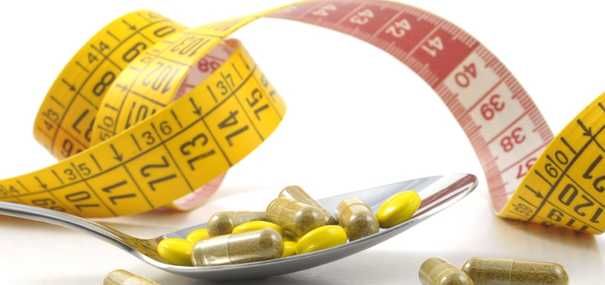Contact Jacoby & Meyers
Dangerous Drug Lawyers
Call us Today 800-977-5614


Most weight loss aids and dietary supplements in the United States are supplied as over-the-counter (OTC) products. The fact that an OTC medication or supplement does not require a prescription does not make it safe. Many of these substances are offered to the general public without making substantial medical claims, thus they are not closely regulated by the federal Food and Drug Administration (FDA). This lack of active oversight by the FDA allows manufacturers and marketers to make misleading statements as to their products’ efficacy and safety.
Even when the FDA does approve the use of a medication for weight loss, as was the case with fenfluramine/phentermine (Fen Phen) in the 1990s, there is no guarantee that adverse, even dangerous, side effects will not be incurred. Fen Phen was eventually shown to cause mitral valve disorders in the hearts of people who took this drug, which eventually led to primary pulmonary hypertension, a potentially fatal condition if left untreated. Eventually, the company that manufactured and distributed Fen Phen was presented with numerous lawsuits. In 2005, the manufacturer set aside $21.1 billion to cover the costs of these lawsuits.
Weight loss and dietary supplements that are sold as OTCs potentially contain many of the same risks. These products are forbidden to make explicit medical claims, and the ingredients used in preparation are marketed as herbal or natural alternatives to prescription pharmaceuticals. These claims, and the ingredients, do not fall under the purview of the FDA, nor are they widely studied by medical scientists. Since the manufacturers are not regulated as stringently, the amount of specific ingredients may vary from tablet to tablet. Specific dosages are often unspecified or vague.
Medical professionals consider the use of OTC weight loss and dietary supplements to be generally benign, but they can interact with drugs prescribed by a person’s licensed physician. When undergoing a medical exam, people who take OTC supplements, metabolic stimulants, or appetite suppressants, should make their healthcare provider aware of the presence of these substances in their blood stream. A credentialed healthcare provider can provide advice as to these product’s best use and possible side effects, especially when used in conjunction with prescription medications.
Dangerous complications have been associated with OTC weight loss and diet supplements. Liver and kidney dysfunction are the most commonly reported adverse effect. In 2008, the FDA released an official warning that the use of kava root has been implicated in liver damage. In 2004, the FDA banned the sale of ephedra, an herb used in Chinese medicine to promote weight loss, because it was linked to over 100 deaths in the United States.
OTC preparations of weight loss and dietary supplements are often manufactured in China, India, or other countries where the pharmaceutical industry is more lightly regulated than it is in the U.S. Tests of random samples of these products reveal that they can contain dangerous, even carcinogenic, substances, such as lead and mercury.
Because OTC supplements are not subjected to extensive, double-blind, scientific studies the way that prescription medications are, their range of beneficial and adverse effects are not clearly established. Supplements that are meant to stimulate metabolism may interact with prescription drugs, reducing or counteracting those drug’s effectiveness. A heart patient prescribed digoxin or warfarin should avoid OTC weight loss products.
A common appetite suppressant on the market today is hoodia, a flowering cactus native to Africa. While this plant has been safely used for generations in its natural form by Africans, it is now commercially prepared and concentrated in pill format. The drug firm Pfizer originally researched the medical use of hoodia as an appetite suppressant. The company finally relinquished its rights to distributing the components found in hoodia after studies indicated that the chemicals involved could cause sever liver damage.
Anyone who takes OTC weight loss or dietary supplements should follow the package’s instructions closely. As soon as adverse effects are detected, use should be discontinued and medical advice should be sought. After that, legal representation may be required to receive just compensation for injuries suffered.
Product liability lawyers who specialize in dangerous drug claims are experienced in preparing the evidence and presenting a case to the courts to determine that negligence on a manufacturer’s or marketer’s part occurred. They work diligently on their clients’ behalf to provide financial relief for damages suffered due to negligence. Dangerous diet supplements and weight loss products have no place in the marketplace. By pursuing justified legal claims, lawyers prevent further damage being done by these substances.



Lawyer Advertising. This website is designed for general information only, and in no way is intended to constitute legal advice nor the formation of a lawyer/client relationship without a signed, written agreement. Testimonials or endorsements do not constitute a guarantee, warranty, or prediction regarding the outcome of your legal matter. You pay no fees or costs unless we recover for you. This website contains dramatizations. Prior results are not a guarantee of a future outcome. Jacoby & Meyers does not accept all cases and works cooperatively with co-counsel and/or other law firms with whom it has joint agreements who might potentially handle your cases. We look forward to helping you with your claim.
© 2012-2025 Jacoby & Meyers. All rights reserved.